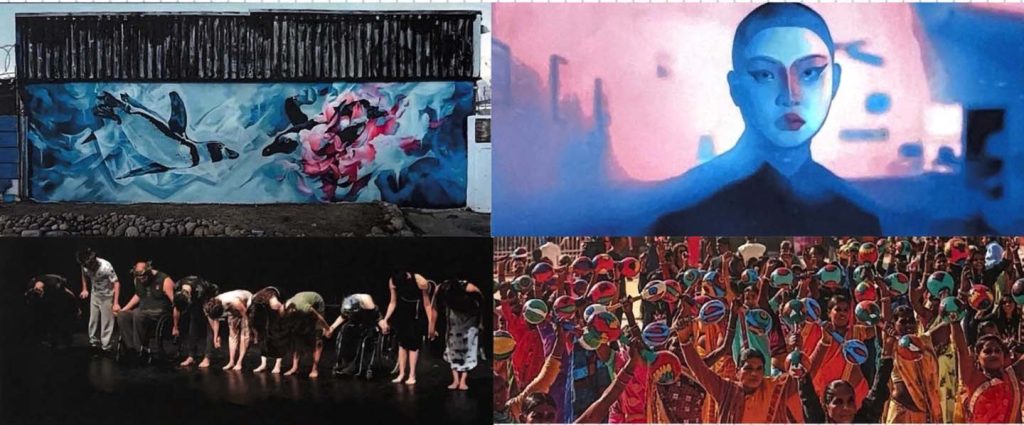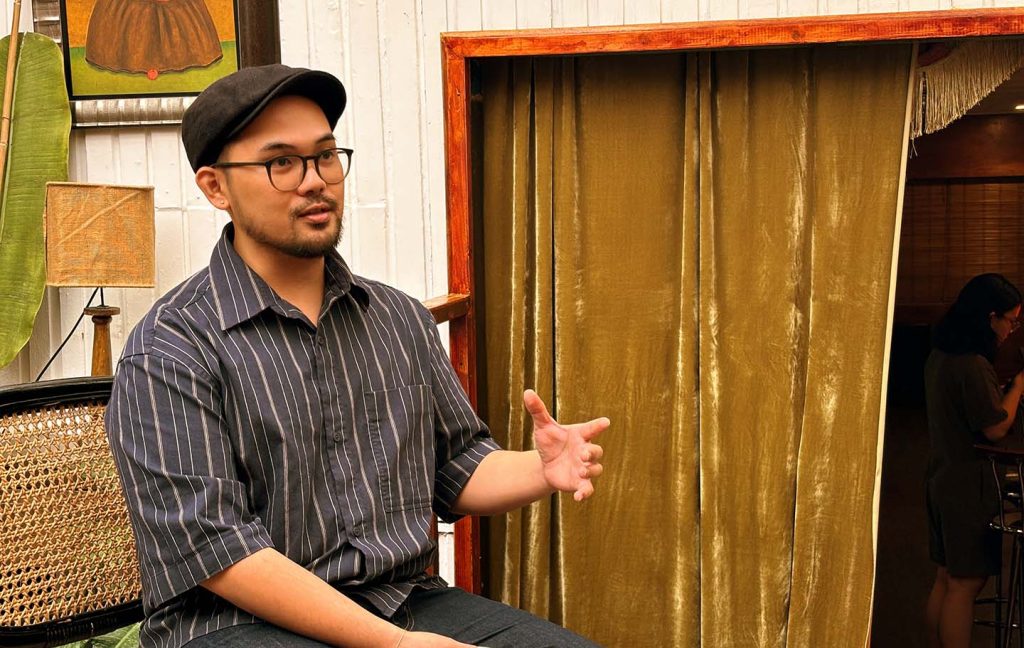MANILA, PHILIPPINES — In recent years, we have witnessed significant growth in the artistic landscape and creative economy. While this has brought about more opportunities for artists worldwide, it has also come with certain challenges. National politics and business interests have influenced artists to adapt their artistic expressions to align with government narratives, international agencies, and business interests. This may be in order to ensure their safety, avoid discrimination, or secure commissions and adequate compensation for their work. Artists have found themselves in situations where they are labeled as sympathizers of terrorist groups or face backlash for expressing opposing views on national issues. Additionally, they may be overlooked for opportunities or receive inadequate pay if their work does not align with the preferences of companies or brands. Artists always find themselves having to constantly navigate these complexities while trying to stay true to their artistic integrity and expression.

The British Council’s Culture Responds to Global Challenges program recently brought together 16 talented cultural artists in the Philippines for a roundtable discussion at Annex House in Makati City. Led by Andrei Nikolai Pamintuan and Jonathan Morley, the discussions revolved around the importance of using arts, culture, and heritage to address major social and environmental issues.
As part of the four Global Programmes in their Arts Department, the Culture Responds to Global Challenges program aims to support artists, cultural practitioners, creative organizations, and even policymakers in responding to global challenges through their work. Through training, grants, research, and policy engagement, the British Council wants to take a people-centered approach that prioritizes co-creation and local leadership.

During the roundtable discussion, the artists and British Council representatives delved into key issues such as safeguarding political and sensitive work, promoting creative freedom, and supporting livelihood, career, and artistic practice. They also emphasized the importance of partnerships in ensuring fair wages for artists and empowering cultural workers.
One of the issues highlighted during the discussion was the need for regional representation in the opportunities provided to artists. It was noted that artists from Manila tend to receive more grants, training, and opportunities, leading to a lack of representation from indigenous communities and other regions in the Philippines.

Andrei Nikolai Pamintuan expressed the importance of hearing insights from local artists and ensuring that programs and activities are responsive to the community’s needs. He emphasized the British Council’s commitment to equity, diversity, and inclusion in its work.
Jonathan Morley reiterated the British Council’s global support for peace and prosperity through arts, education, and cultural partnerships. He outlined the five themes around which their work revolves: Creative Climate Action, Diverse Narratives, Gender Equality, Disability Arts, and Cultural Heritage Protection.

The discussion also focused on making artistic opportunities accessible to people from all walks of life and ensuring that artistic expression remains independent from national and foreign policy influences.
The roundtable discussion served as a platform for artists to share best practices, exchange ideas, and work towards addressing global challenges through art and culture. The British Council’s commitment to supporting artists, promoting diversity and inclusion, and championing the role of arts in tackling global issues was evident throughout the discussion.
As I reflect on the ever-evolving landscape of artistry and the art industry, I can’t help but wonder – can initiatives like the Culture Responds to Global Challenges program really make a difference? In a world full of complex societal issues, is it possible for arts and culture to truly have a transformative impact given the current personal challenges they face themselves?

But then I think about the collaboration, the advocacy for equitable representation, and the promotion of creativity that this program embodies. And I can’t help but feel a sense of hope. Perhaps, just perhaps, the British Council and the cultural artists in the Philippines can shape something together that might pave the way to mitigate these challenges. Maybe, through their efforts, we can improve and create a more inclusive and innovative cultural landscape where all voices are not just heard, but freed and celebrated. And in that possibility, I find a glimmer of hope for the future.








